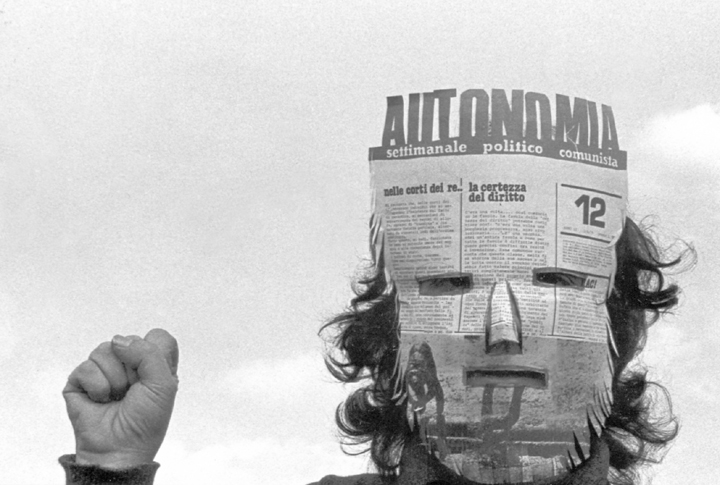“Rather than struggle within the context that has been created for you, you can create your own context.” – from A Brief History of Italian Autonomia by Sylvere Lotringer
The other day I ran into two neighbors who live on our block, which is just up the road from Beyond Repair. With each, independent of one another, a spontaneous conversation began around needs for our block and for the neighborhood in general. The first conversation was in regard to cars going up and down our street and the safety of the many kids who live and play up and down the block, my own three kids included.
While we live on a street that, a few blocks down, is a dead-end, cars still seem to turn on to the block and accelerate quickly as they go. My neighbor and I were both worried about kids running out to cross the street and getting hit. I was immediately reminded of City Repair, a group back in Portland that, while I really couldn’t handle their day-glow colors and cob house aesthetics, did remarkable work to engage neighbors and specific concerns within neighborhoods. One project, in particular, came to mind. I believe it was, simply, called Intersection Repair. A group of neighbors from the surrounding intersection would work together and come up with a design to paint the intersection which they wanted more people to pay attention to. The idea being that, with bright colors, and displays on each corner, drivers would be more aware of their surroundings.
I told my neighbor about this project, and offered up the idea that we should do it too. But, rather than asking for permission, or looking for support for paint, etc, we should just talk to people up and down the block who we thought would be into it and have at it.
Not long after, another neighbor passed. He was going to a meeting of the MPLS Parks Board to highlight, among other things, the need for a soccer field in Powderhorn Park, just a block away from our homes. The lower ballfields in the park are not well cared after, and while there is a huge swath of land between the parameter, they are outfitted for two baseball fields alone. While the ball field is used, it isn’t in its entirety. Most of the time a large amount of the field in full isn’t being used. Lots of people play soccer on the field at Powderhorn. Many of these folks are Latino / Latina and Somali-American. But the fields are not really intended for soccer and are suited, more appropriately, for pick-up games.
The MPLS Parks Board, like many around the country, greatly underfunds parks within less affluent neighborhoods. Often it is the case that these are also neighborhoods wherein people of color represent a large portion of the residents. Obviously this comes as no surprise.
My neighbor and I talked about the need for a soccer field being included within the park, but also the bigger picture, that the Parks Board needs to be responsive to the neighborhood, and not simply the most affluent and / or loudest among us. If there’s need and desire, get it done. And yet, time and again, it doesn’t.
Certainly one could make the case that work of this nature doesn’t get done because not enough people come out and support it. There’s some merit to that, but not enough. Money speaks for money.
So, in thinking through these two conversations with my neighbors yesterday, I couldn’t help but keep coming back to the work of the Autonomia movement and their “Autoreductions,” collective and cooperative “readjustments” of municipal decisions, often those that proved to be a poor tax, or programs that greatly disadvantaged the marginalized.
The quote above at the beginning of this note, by Lotringer, is a distillation of Antonio Negri’s ideas on value, a way outside of labor in the market-sense, to locate value in our individual and shared efforts. We all know, whether its working in a job, or working within the electorate, that more often than not the end results often feel far less valuable than the effort exerted. What methods of engagement, between ourselves, might shift this paradigm and change our relationship to value, at the very least, amongst one another, the ones we truly should count on most for care, protection, survival?
When it comes to systems of power, why do we so often accept the existing hierarchy as – if not just, fair, or impartial – the only reality available? The only acceptable measurement by which we can assess and equate value and effort? Can we redefine work and value between us? If, for instance, the Parks Board doesn’t allocate funding for a soccer field does that mean no soccer field? Why? There are dozens of people in the neighborhood who would put in the labor and time to re-adjust the field as is to make it more conducive for soccer playing. And while, granted, the result would likely be a little scrappy, it would be the neighborhood’s, both in effort and in spirit. It would continue to be cared for, unlike the field in its present state, because those neighbors who helped see it into existence would feel responsible for it as their own. It would gain value. The type of value we, all too often and for too long, have little to no understanding of.
